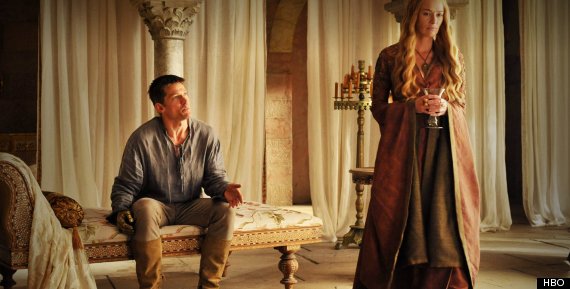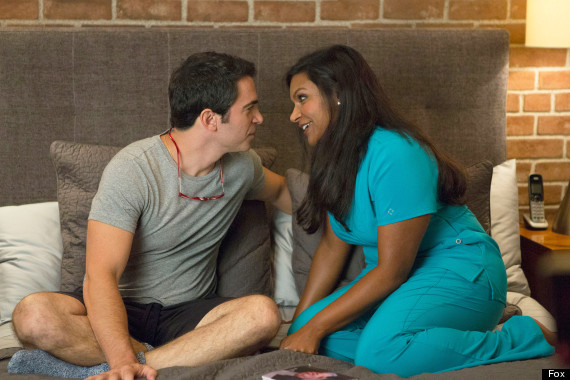Television soared in 2014, offering audiences a year full of diverse storytelling, remarkable new shows, continually impressive old shows and some unforgettable performances.
Yet this year also gave us some rather contentious episodes that set the Internet ablaze and spurred a chain reaction of thinkpieces among television critics and writers. Here’s a look back on 2014’s most controversial TV episodes:
“Louie” — “So Did The Fat Lady”
Season 4 of “Louie” was undoubtedly the writer and actor’s most debated season yet, stirring up fiery debates on the Internet following multiple episodes. The first one that gave way to divided opinions was “So Did The Fat Lady,” in which Vanessa (played by Sarah Baker) delivers a seven-minute monologue to Louie during a date about what it’s really like to live as an overweight woman. While some praised the episode, others questioned C.K.’s authority to speak on behalf of women in general, saying that the speech “felt like a plea” the writer wasn’t qualified to make.
“Louie” — “Pamela (Part 1)”
Not content to merely deal with body issues, Louis C.K. also tackled sexual assault during Season 4. In “Pamela (Part 1),” which was a three-part story arc, Louie drunkenly throws himself on his unwilling friend, Pamela (played by Pamela Adlon), tries to kiss her and ends up chasing her around his apartment. “This would be rape if you weren’t so stupid,” Pamela said, before anything turned too dark. The scene had critics questioning what C.K.’s intention was with the episode. While the penultimate episode of Season 4 revealed how “Louie” was striving to push buttons and stir conversations, commenting on our culture’s quick impulse to tear apart everything we consume, not all journalists were pleased with the season.
Game of Thrones — “Breaker of Chains”
“Game of Thrones” is known for being one of the most bloody, brutal and sexually explicit shows on television (that’s why we love it). But this past season included an episode that enraged and upset even the most devout fans of both the show and books. The scene in question featured an incestuous rape between Jaime and his sister, Cersei, which was shocking in not just content but in how it also differed from the books. Critics spoke out immediately, deeming the scene rape without question and dissecting why the changed plot — which was perceived as consensual in the books — necessitated discussion. Meanwhile, the episode director, Alex Graves, said that in his perspective, the scene became “consensual by the end,” while George R.R. Martin said that he regretted if the scene upset people for the wrong reasons.
The Newsroom — “Oh Shenandoah”
Aaron Sorkin’s HBO drama “The Newsroom” came to a close this year, but it definitely didn’t leave without making some noise. In the penultimate episode of the final season, Don Keefer (Thomas Sadoski) interviewed a young college student who says she was raped at a party. The episode was very timely, as it aired following the Bill Cosby sexual assault accusations and Rolling Stone’s University of Virginia gang rape article, but wound up being terribly flawed.
Libby Hill of the AV Club pointed out the “casual dehumanization” of the episode, saying that it “tries to assuage our ill-feelings about rape by rampantly defending the rights of famous people from paparazzi.” The backlash was pretty universal, with David Sims of The Atlantic calling the episode “‘The Newsroom’ at its worst, through and through.” Things got even more contentious when “Newsroom” writer Alena Smith claimed she had been “kicked out” of the writers room over the episode. (Sorkin released a lengthy statement disputing her claims.)
“The Mindy Project” — “I Slipped”
There were a lot of controversial episodes that dealt with sex and consent this year, but none did what “The Mindy Project” did: featured the first ever anal sex scene on broadcast TV. In the scene, Danny (Chris Messina) tried to have anal sex with Mindy for the first time, claiming he “slipped.” The episode received some negative reactions from disappointed fans, and Kaling responded saying that she didn’t view it as “an issue of sexual unsafety.” The episode not only started conversations about what consent means, but also what it means on TV versus real life, and what we can learn from and hope to change about that.







